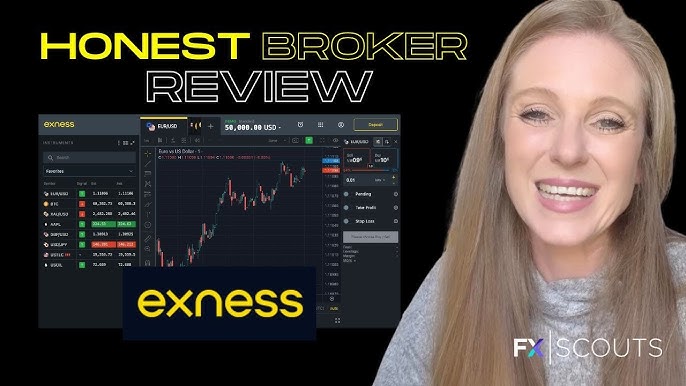
Exness Forex Regulatory Framework: Ensuring Safe Trading
The world of forex trading is vast and complex, with numerous brokers offering various services and opportunities. Among them, Exness has carved a niche, attracting traders from all around the globe. One crucial aspect that sets Exness apart is its commitment to regulatory compliance and ensuring trader safety. In this article, we will delve into the intricacies of the Exness forex regulatory landscape and explore how it impacts traders’ experiences. For a comprehensive review of Exness, visit exness forex regulatory exnessreview.net.
What is Forex Regulation?
Forex regulation refers to the oversight and enforcement of rules and laws governing forex trading and brokers. Regulatory bodies are responsible for ensuring the integrity of financial markets and protecting investors. They establish guidelines that brokers must follow, which include transparency requirements, risk disclosures, and capital adequacy standards. Regulatory frameworks differ from one jurisdiction to another, influencing how brokers operate globally.
Why is Regulation Important?
Forex regulation is vital for several reasons:
- Security: Regulation enhances the security of traders’ funds by ensuring that brokers maintain sufficient capital and adhere to strict operational practices.
- Transparency: Regulatory oversight mandates that brokers provide clear and accurate information about their services, allowing traders to make informed choices.
- Dispute Resolution: Regulated brokers are often required to have mechanisms in place for resolving disputes between traders and the broker, offering an additional layer of protection.
- Market Integrity: Regulations help maintain the integrity of the forex market by preventing fraudulent activities and ensuring that all market participants are treated fairly.
Exness’ Regulatory Framework
Exness is regulated by several reputable agencies, providing reassurance to its clients. Key regulatory bodies overseeing Exness include:
1. Financial Conduct Authority (FCA)
Based in the UK, the FCA is one of the most recognized financial regulators globally. Exness operates under FCA regulations, which require brokers to maintain a certain level of capital and follow strict guidelines regarding client funds. This ensures that client funds are kept in segregated accounts, separate from the broker’s operational funds, thereby adding an extra layer of security for traders.
2. Cyprus Securities and Exchange Commission (CySEC)
CySEC regulates the trading activities of Exness Cy Limited, providing access to European clients. CySEC’s framework is known for its investor protection policies, including the Investor Compensation Fund (ICF), which can compensate clients in the event that a broker fails to meet its obligations.
3. Financial Services Authority (FSA) of Seychelles
Exness is also regulated by the FSA in Seychelles. This allows them to cater to a broader range of clients while adhering to regional regulatory requirements. The FSA provides a regulatory environment that is conducive for brokers looking to operate globally.
Impact on Traders
The regulatory status of Exness has significant implications for traders:

Trust and Reliability
Being regulated by authoritative bodies instills a sense of trust among traders. Knowing that Exness adheres to strict regulatory standards reassures clients that their funds are managed responsibly and ethically.
Account Safety
Traders can feel safer knowing that regulatory bodies enforce policies that protect client funds, including the requirement for segregation of funds and participation in compensation schemes.
Access to Resources
Regulated brokers like Exness often provide more educational resources, tools, and support to help traders make informed decisions. This commitment to trader education contributes to a more experienced trading community.
Better Trading Conditions
Exness’ commitment to regulation can enhance trading conditions through competitive spreads, various account types, and advanced trading platforms, leading to a better overall trading experience.
Challenges Faced by Regulated Brokers
While being regulated offers many advantages, Exness and similar brokers face challenges, including:
Compliance Costs
Staying compliant with regulatory requirements can impose significant costs on brokers, impacting their profit margins. These costs often get passed on to clients in the form of higher fees or spreads.
Limited Product Offerings
Regulated brokers may face restrictions on some trading instruments or leverage ratios, which could limit trading options for clients looking for a diverse portfolio.
The Role of Traders in Promoting Regulatory Standards
Traders themselves play a crucial role in supporting regulatory frameworks. By choosing to trade with regulated brokers like Exness, they not only protect their interests but also promote higher standards in the industry. Active engagement with regulatory bodies through feedback and reporting suspicious activities can further enhance market integrity.
Conclusion
Understanding the regulatory landscape is essential for traders navigating the forex market. Exness, with its robust regulatory framework, exemplifies the advantages of trading with compliant brokers. By ensuring the safety of client funds and adhering to strict operational standards, Exness offers a reliable trading environment for both novice and experienced traders. As the forex market continues to evolve, staying informed about regulatory developments remains crucial for successful trading.

No comment